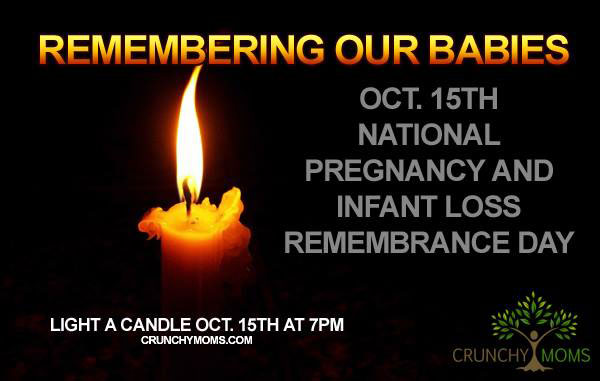Culturally, we don’t acknowledge miscarriage and pregnancy loss. The first advice expectant mothers get is to wait until after 12 weeks to tell anyone they are pregnant. If your pregnancy results in a loss, you won’t have to make people uncomfortable by “un-telling” them. The 12 weeks mark isn’t a magical safe line. My first pregnancy ended at 17 weeks. With my second pregnancy I decided it was better to share early, happy, news and let people be happy with us. I don’t think we should be keeping all our grief private to spare other people discomfort. Instead of telling women who have suffered a miscarriage or pregnancy loss to stay quiet about their grief, we should be working towards treating them with compassion, like the grieving mothers they are.
Here are 5 things we need to stop saying to women who have suffered loss and 5 things we should start doing instead.
What not to Say:
- It wasn’t meant to be – it’s God’s will: These phrases don’t make it hurt any less. It just makes you feel that what was meant to be was a whole lot of pain, hurt, and a loss of motherhood.
- At least it was early: It really doesn’t matter if you are three weeks pregnant or 9 months. As soon as you find out you’re pregnant, you bond with your baby, and start dreaming about who this little person is going to be. You have been with this child their whole life. Losing them means losing your hopes and dreams. This is hard, regardless of how far along you were. You lost your child.
- It was probably deformed – it’s for the best: This is saying you failed to make a perfect baby, also that having an imperfect baby means less, that you love them less, or that it hurts less. There are lots of reasons pregnancies end, and they don’t all have to do with problems with the baby. Regardless of the reason, it is your baby; nothing makes you love them less.
- You’ll get over it once you get pregnant again: Although for some women, they want to be pregnant again, as soon as possible, other women need to wait until their due date passes, before they feel ready to be pregnant again. My pregnancy following my loss was stressful. It felt hard to breath, impossible to hope. I spent every moment of my second pregnancy dreading that this baby would die too. I had to compartmentalize pregnancy and babies. Even now, during my third pregnancy, I still can’t allow myself to think in terms of baby.
- At least you know you can get pregnant: Just because you got pregnant once doesn’t guarantee that you will again, or that you will be able to carry a baby to term. Regardless, you don’t get back the baby you lost.
- Aren’t you over that yet? – You should just move on – Time heals all: It’s the loss of a child. You never get completely over it. Nothing “fixes” it. Each person’s grief process is different. It does get easier to deal with, but, there is always a baby shaped hole in your life. It doesn’t matter how many other children you have or how many years go by.
What to do:
- Acknowledge that this baby was loved: This means asking her how she’s doing around the date her baby was due, and around the anniversary of her loss. No matter how many other children she has, or will have, this baby counts, this baby is special, it was wanted and loved.
- Let them know they are not alone: If you have suffered a loss, then you know that just hearing, “I lost a baby too,” and seeing you are surviving, is helpful.
- Understand there are sad days: The due date, the loss date, and, in future pregnancies, making it past the point in pregnancy of the previous loss, are all hard times to get through. Even years later, theses dates are difficult.
- Understand they are grieving: Don’t expect your friend to be their usual happy self. Don’t give them a hard time for feeling sad, being depressed, not being able to be around pregnant women or babies. Don’t abandon them because they are sad. Be there for them. Support them through their grief.
- If you are pregnant don’t hide it from friends who have experienced loss: Let them know, in an email, you understand if they need some space, or if they need to block being able to see your posts on Facebook. It’s not that they aren’t excited for you, it’s just that it can be hard, emotionally, to be around you. If you do continue to hang out, try not to complain about your pregnancy, they would endure anything to have the baby they lost.
After a loss, it’s important to remember that not only is the woman suffering emotionally, but she can also be affected physically. Many have had surgery, and are experiencing several, if not all, of the same changes that affect a woman after a full term birth . After my loss, not only was I heartbroken, I was severely anemic. I had emergency surgery, and to add insult to injury my milk came in, I was a mess. People dropping off food, offering help, sending a sympathy card, as one would after a family death (which is what it is), is extremely helpful, and appreciated.

